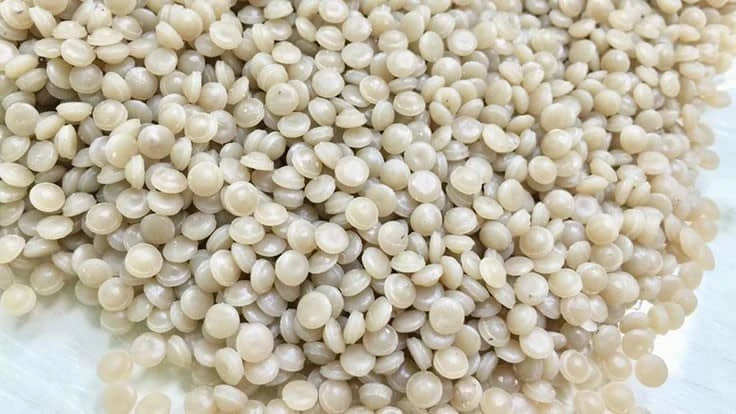
Photo courtesy of PreZero US Inc.
The traders and processors who collect, bale and reprocess plastic scrap may feel as if they are a player in the Pokémon universe. While their mission may not be to “catch ‘em all,” they are under increasing pressure to find enough plastic scrap to meet growing global demand for sustainable materials.
At the Plastics Committee meeting of the Brussels-based Bureau of International Recycling (BIR) 2021 World Recycling Convention, panelists in a June 2 online roundtable said they are happy to see higher prices for plastic scrap, but added that prices will have to maintain their lofty status to allow supply to meet what appears to be a new level of global demand.
Committee chair Henk Alssema of Netherlands-based Vita Plastics described a 2021 landscape of high prices coupled with it being “very difficult to fulfill supply obligations” because of shortages of material.
Max Craipeau of Hong Kong-based Greencore Resources Ltd. said the lack of feedstock “is a situation we might face in the future, with increasing demand from brand owners for recycled content.” Added Craipeau, “We have to be ready to face that. It has kind of been that way for PET [polyethylene terephthalate], and it will happen for the other resins as well. Recyclables will become more and more sought after.”
United States-based PET bottle recycler Sally Houghton of Plastic Recycling Corp. of California said while the shortages are a headache, the situation has an upside. “I think we’re in a very lucky position,” she stated. “We’re in a position we’ve been hoping we’d get to.”
Houghton added, “Here in California we are working very hard to increase our recycling rate, and the quality of our PET bales.” She said the steady demand also could help promote the collection of PET thermoform packaging. “Innovation and technology is coming along behind. It’s up to the industry to show its innovation.”
In addition to corporate sustainability-related demand for postconsumer resins (PCR), panelists pointed to government targets and mandates, such as those attached to the EU’s Green Deal. Houghton said California has enacted its mandate while the nearby state of Washington also has passed a PCR-mandated recycled-content bill.
Steve Wong of Hong Kong-based Fukutomi Corp., who also represents the China Sustainable Plastics Association, said trade barriers against plastic scrap shipped to Asia have created a severe “disconnection between what the market requires and what is available.”
Corporate and government recycled-content requirements for goods and packaging could be creating a global market for more than 100 million metric tons of recycled-content plastic, Wong said. Much of that will be needed in Asia. However, Basel Convention restrictions mean “in the Far East, especially, there won’t be enough material for recycled-content purposes,” he said.
The recycling company CEO also said there is not enough infrastructure in Asia for the collection and reprocessing of locally generated plastic scrap, especially for “buyers looking for high-quality and food-contact-grade” materials. Regional processors, Wong added, also “struggle” to contact or fully connect with brand owners or to understand their requirements.
A presentation from one such global brand owner was given by Eelco Smit, senior director of sustainability with Netherlands-based conglomerate Philips. Smit said several years of involvement with using recycled-content resins has taught Philips that, “If we want to transition to the circular economy, it starts with the way we design our products.”
Recycling end-of-life appliances or medical devices “is complicated,” said Smit, but at the same time, “We cannot expect product designers and engineers to be recycling experts.” He said Philips is stressing cooperation among stakeholders and training for some designers and engineers. Philips used some 1,900 metric tons of recycled-content plastics in 2020 and has a target of 7,600 tons used by 2025.
Plastic traders, along with all others engaged in container shipping, have paid high prices and had difficulty making bookings for the past 12 months. Theo van Ravesteyn, nonexecutive chairman with Mediterranean Shipping Co. (MSC), said such conditions are unlikely to subside anytime soon.
He said after three decades of “boom and bust” cycles and overly optimistic investments made in the container shipping industry, consolidation and alliances have created a sector that has “completely changed.”
Carriers have “managed capacity” throughout the post-COVID-19 shipping rebound, said van Ravesteyn. “Basically, prices are going up in all markets every day. All available ships are deployed currently [and] shippers are finally making a profit.”
The MSC board member said shipping lines would rather maintain their discipline and not reengage in “optimistically ordering ships and bigger ships” and “falling into a race to the bottom.” Concluded van Ravestyn, “We won’t go back to the days [where] shipping rates were zero” to ship scrap to China. “Those days are over.”
Latest from Recycling Today
- BMW Group, Encory launch 'direct recycling’ of batteries
- Loom Carbon, RTI International partner to scale textile recycling technology
- Goodwill Industries of West Michigan, American Glass Mosaics partner to divert glass from landfill
- CARI forms federal advocacy partnership
- Monthly packaging papers shipments down in November
- STEEL Act aims to enhance trade enforcement to prevent dumping of steel in the US
- San Francisco schools introduce compostable lunch trays
- Aduro graduates from Shell GameChanger program





